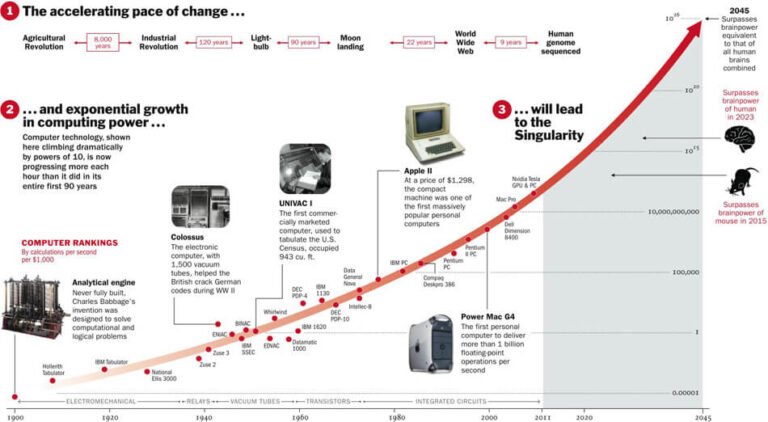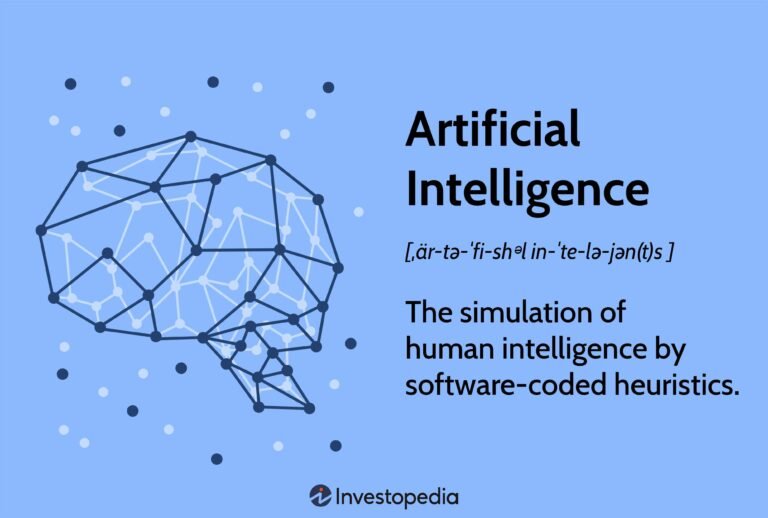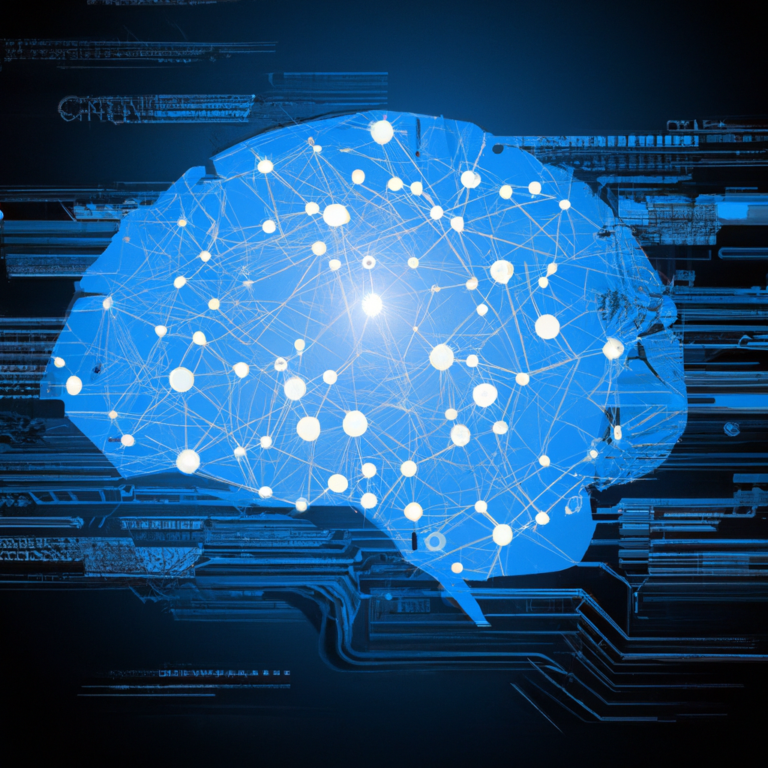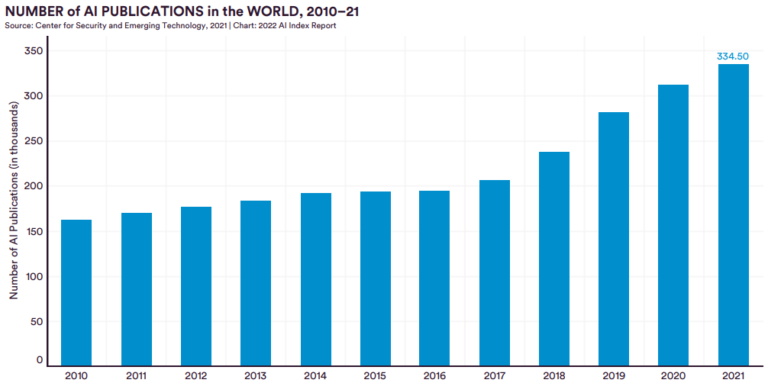The Potential Of AI To Solve Global Problems: How Can AI Help Us Solve The World’s Biggest Problems?
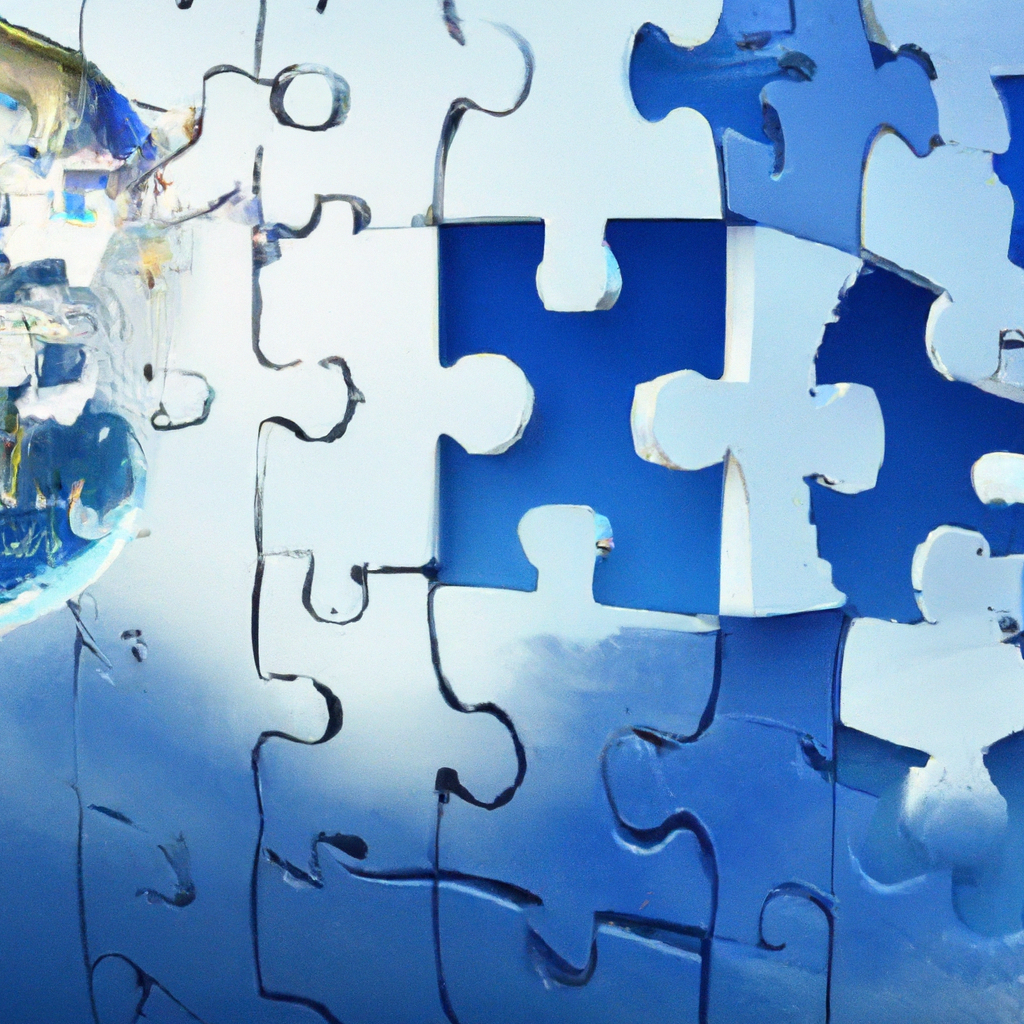
Artificial Intelligence (AI) has the power to revolutionize the way we tackle global issues and solve the world’s biggest problems. From climate change to poverty alleviation, AI has the potential to bring about innovative solutions that can have a lasting impact on humanity. By harnessing the capabilities of AI, we can delve into unexplored possibilities and uncover new insights, enabling us to address these challenges with greater efficiency and effectiveness. This article explores the vast potential of AI and how it can be leveraged to create a better future for all.

Healthcare
In the field of healthcare, AI has immense potential to revolutionize numerous aspects, starting from improving diagnostics and disease prediction. AI algorithms can be trained on vast amounts of medical data to identify patterns and indicators that even highly experienced healthcare professionals may miss. This can lead to earlier detection of diseases, more accurate diagnoses, and ultimately, more effective treatments.
Additionally, AI can greatly enhance personalized medicine. By analyzing an individual’s genetic information, medical history, lifestyle factors, and other relevant data, AI can provide tailored treatment plans and preventive measures. This approach not only improves patient outcomes but also reduces healthcare costs by avoiding unnecessary treatments or medications that may not be effective for certain individuals.
Furthermore, AI can streamline healthcare management and operations. Administrative tasks, such as appointment scheduling, medical record-keeping, and billing, can be automated using AI systems. This not only saves time and resources for healthcare providers but also improves the overall patient experience by minimizing errors and ensuring smooth processes.
Lastly, AI can play a significant role in drug discovery and development. With the help of AI algorithms, researchers can analyze vast amounts of medical research data, identify potential targets, and even simulate the effects of various compounds on the human body. This accelerates the drug development process, making it more efficient and cost-effective.
Climate Change
AI can also contribute to mitigating the impacts of climate change. By monitoring and predicting environmental changes, AI can provide valuable insights that aid in developing effective strategies and policies. For instance, AI algorithms can analyze satellite imagery to track deforestation rates, detect changes in weather patterns, and predict the occurrence of natural disasters such as hurricanes or wildfires.
Moreover, AI can optimize renewable energy usage. By analyzing energy consumption patterns, weather data, and infrastructure characteristics, AI systems can recommend the most efficient ways to generate and distribute renewable energy. This can significantly reduce reliance on fossil fuels, lower greenhouse gas emissions, and contribute to a more sustainable energy landscape.
In addition, AI can support sustainable agriculture and forestry practices. By analyzing soil composition, weather data, and crop characteristics, AI can provide farmers with valuable insights on optimal planting strategies, water usage, and pest management. This helps maximize crop yields, reduce waste, and minimize the environmental impact of agricultural activities.
Furthermore, AI can facilitate climate modeling and risk assessment. By simulating various scenarios and predicting the potential consequences of climate change, AI can aid policymakers and organizations in designing robust adaptation and mitigation strategies. This enables proactive measures to be taken, minimizing the impacts of climate change on communities and ecosystems.
Poverty and Inequality
AI has the potential to address many of the challenges associated with poverty and inequality. By enhancing access to education and learning, AI can bridge the educational gap between different socioeconomic groups. Intelligent tutoring systems can provide personalized learning experiences, catering to individual students’ needs and learning abilities. Additionally, AI-powered platforms can provide remote access to quality educational resources, reaching underserved populations and promoting lifelong learning.
AI can also enable financial inclusion and access to credit. Machine learning algorithms can analyze vast amounts of financial data, allowing financial institutions to make accurate credit assessments and offer loans to individuals or businesses that may have been previously overlooked. This helps create economic opportunities and empower marginalized communities.
Furthermore, AI can support job creation and economic growth. By automating routine and repetitive tasks, AI frees up human labor for more creative and complex roles. This leads to greater productivity and higher-quality output, driving overall economic development. Additionally, AI-powered platforms can connect job seekers with suitable employment opportunities, reducing unemployment rates and promoting inclusive economic growth.
Lastly, AI can improve targeted social welfare and assistance programs. By analyzing demographic data, household income levels, and other relevant factors, AI algorithms can identify individuals or communities in need of assistance. This enables more efficient allocation of resources, ensuring that support reaches those who need it the most.
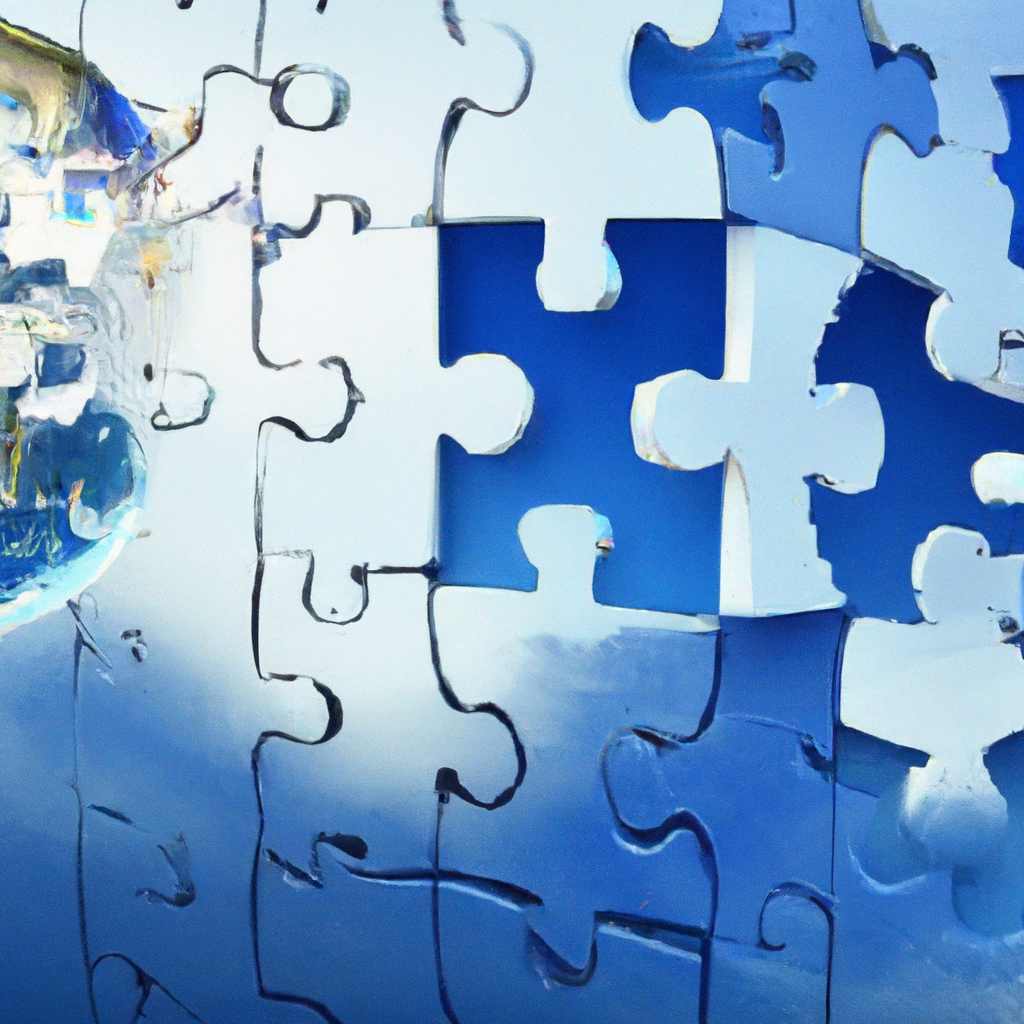
Education
AI has the potential to transform education by personalizing learning experiences and providing adaptive tutoring. Intelligent tutoring systems can adapt to an individual student’s learning pace, preferences, and strengths, thereby maximizing their learning outcomes. AI algorithms can also analyze students’ progress and provide targeted feedback, helping them identify and address areas where they may be struggling.
Furthermore, AI can facilitate access to quality education globally. Online platforms powered by AI can provide educational resources, courses, and interactive learning experiences to individuals regardless of their geographic location or socioeconomic status. This helps democratize education and create equal opportunities for all.
Moreover, AI can improve administrative efficiency in educational institutions. AI systems can automate administrative tasks such as enrollment, grading, and scheduling, freeing up time for educators to focus on teaching. This leads to streamlined processes, reduced administrative burden, and improved overall efficiency.
Additionally, AI can automate grading and feedback processes. By analyzing students’ work, AI algorithms can provide instant and objective feedback, allowing students to assess their progress and make necessary improvements. This not only saves time for educators but also promotes a more efficient learning environment.
Hunger and Food Security
AI can play a crucial role in ensuring food security by optimizing agricultural processes and resource allocation. By analyzing soil data, weather patterns, and crop characteristics, AI can provide farmers with insights on optimal irrigation and fertilizer usage. This helps maximize crop yields while minimizing resource wastage and environmental impact.
Furthermore, AI can improve crop yield predictions and pest management. AI algorithms can analyze historical data, satellite imagery, and weather forecasts to predict crop yields accurately. This enables farmers to plan their harvesting and distribution strategies more effectively, reducing food waste and ensuring timely access to fresh produce. AI can also aid in detecting and preventing pest outbreaks by analyzing sensor data and providing timely recommendations for pest control.
In addition, AI can enhance supply chain management for perishable goods. By analyzing transportation routes, storage conditions, and demand patterns, AI systems can optimize logistics operations, reducing spoilage, and minimizing food losses. This helps ensure a more efficient, reliable, and sustainable food supply chain.
Moreover, AI can enable precision farming techniques. By using sensors, drones, and AI algorithms, farmers can monitor crop health, soil conditions, and water usage in real-time. This allows for more precise and targeted interventions, optimizing resource utilization and minimizing environmental impact.
Cybersecurity
In an increasingly digital world, AI can help detect and prevent cyber threats and attacks. AI-powered systems can continuously monitor network traffic, identify suspicious activities, and respond promptly to potential security breaches. By analyzing vast amounts of data in real-time, AI algorithms can identify patterns and indicators of cyber threats that may go unnoticed by traditional security measures.
Additionally, AI can safeguard personal data and privacy. AI algorithms can analyze user behavior and identify potential privacy risks, allowing individuals and organizations to take appropriate measures to protect their sensitive information. Furthermore, AI can facilitate the development of advanced encryption techniques, ensuring secure transmission and storage of data.
Moreover, AI can enhance network and system security. AI algorithms can identify vulnerabilities in networks and systems, recommend security patches and updates, and continuously adapt to emerging threats. This helps organizations stay one step ahead of potential cyber attacks and ensures the resilience of critical infrastructure.
Lastly, AI can contribute to the development of advanced authentication techniques. Facial recognition, voice recognition, and behavioral biometrics can be utilized to verify user identities securely. This helps prevent unauthorized access to sensitive systems and data, ensuring the confidentiality and integrity of digital assets.
Transportation
AI has the potential to revolutionize transportation by enabling autonomous vehicles and smart transportation systems. Self-driving cars can reduce the likelihood of human error, leading to improved road safety, reduced traffic congestion, and enhanced mobility for individuals who are unable or unwilling to drive. Moreover, AI algorithms can optimize traffic flow by analyzing real-time data and adjusting signal timings, reducing congestion, and improving overall transportation efficiency.
Furthermore, AI can improve transportation safety and accident prevention. By analyzing driver behavior, weather conditions, and road characteristics, AI systems can identify potential hazards and provide real-time alerts and recommendations to drivers. This helps prevent accidents and promotes safer driving practices.
Additionally, AI can enhance logistics and supply chain management. AI algorithms can analyze transportation routes, delivery schedules, and demand patterns, optimizing delivery operations and reducing delivery times. This leads to more efficient supply chains, reduced costs, and improved customer satisfaction.
Moreover, AI can improve the accessibility and efficiency of public transportation systems. By analyzing passenger flow, demand patterns, and infrastructure characteristics, AI algorithms can optimize public transportation routes, frequencies, and capacities. This enhances the overall reliability, affordability, and convenience of public transportation, making it a more attractive alternative to private vehicles.
Energy Efficiency
AI has the potential to greatly enhance energy efficiency by improving smart grid management and optimization. AI algorithms can analyze energy consumption patterns, grid performance data, and weather forecasts to optimize energy generation, distribution, and storage. This helps reduce energy wastage, ensure a stable and reliable energy supply, and lower carbon emissions.
Furthermore, AI can contribute to the development of energy consumption monitoring and control systems. By analyzing real-time energy usage data, AI algorithms can identify energy-saving opportunities, recommend behavioral changes, and adjust energy usage automatically. This empowers individuals and organizations to make informed decisions and reduce their energy consumption.
Moreover, AI can optimize energy usage in buildings and industries. By analyzing building energy consumption patterns, occupancy data, and weather forecasts, AI systems can optimize heating, cooling, and lighting operations. This reduces energy waste, lowers operating costs, and improves overall environmental performance.
Additionally, AI can enable predictive maintenance for energy infrastructure. By continuously monitoring equipment performance, AI algorithms can detect potential faults or malfunctions in advance and recommend appropriate maintenance actions. This helps minimize downtime, maximize equipment lifespan, and reduce unnecessary maintenance costs.
Water and Sanitation
AI can assist in ensuring water quality and addressing water scarcity issues. By monitoring and managing water quality, AI algorithms can analyze data from various sources, such as sensors and satellite imagery, to detect contamination or pollution. This enables prompt action to be taken, ensuring the safety of water resources.
Furthermore, AI can improve wastewater treatment and reuse. AI systems can optimize treatment processes, monitor effluent quality, and recommend the most efficient treatment methods. This helps reduce the environmental impact of wastewater discharge and promotes the reuse of treated water, alleviating water scarcity concerns.
Moreover, AI can enhance water distribution networks’ efficiency. By analyzing sensor data, weather forecasts, and demand patterns, AI algorithms can optimize water distribution, minimize leakage, and reduce water losses. This leads to more efficient and sustainable water management practices.
Additionally, AI can play a crucial role in detecting and responding to natural disasters affecting water systems. By analyzing satellite imagery, sensor data, and weather forecasts, AI algorithms can identify potential risks and provide early warnings for floods, droughts, or other water-related disasters. This enables timely and effective response measures to be implemented, minimizing the impacts on communities and ecosystems.
Public Safety and Security
AI can significantly contribute to public safety and security by developing advanced surveillance and threat detection systems. AI algorithms can analyze vast amounts of video footage, audio recordings, and sensor data to identify suspicious activities or potential threats. This helps law enforcement agencies stay vigilant and respond promptly to potential security risks.
Furthermore, AI can enhance emergency response and disaster management. By analyzing real-time data from various sources, such as social media, emergency hotline calls, and sensor networks, AI algorithms can provide valuable insights to emergency responders. This enables more efficient resource allocation, timely evacuation orders, and effective coordination during crisis situations.
Additionally, AI can improve crime prevention and predictive policing. By analyzing crime data, demographic information, and other relevant factors, AI algorithms can identify crime hotspots and forecast crime trends. This helps law enforcement agencies allocate resources effectively, target preventive measures, and reduce crime rates.
Moreover, AI can enable secure border control and identity verification. Facial recognition and biometric technologies can be used to identify potential threats or individuals with unauthorized access, helping enhance border security and ensure the safety of citizens.
In conclusion, the potential of AI to solve global problems is vast and promising. From healthcare to climate change, poverty and inequality to education, hunger and food security to cybersecurity, transportation to energy efficiency, and water and sanitation to public safety and security, AI can revolutionize various sectors and contribute to solving the world’s biggest challenges. By harnessing the power of AI and prioritizing ethical considerations, we have an opportunity to create a more inclusive, sustainable, and secure future for all.
Want to write articles like us? Get your copy of AI WiseMind here!

